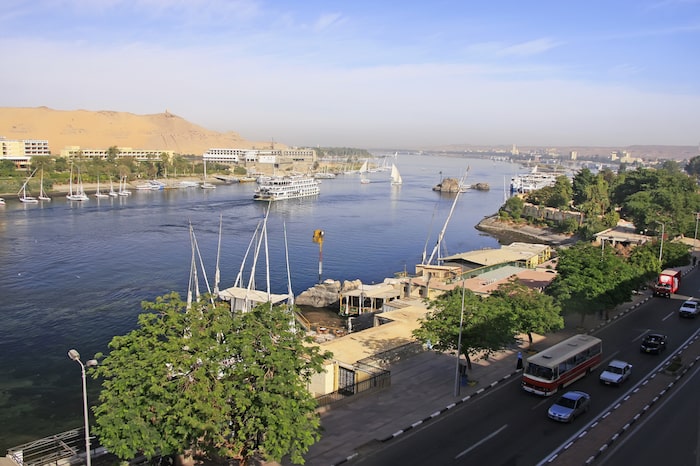No other nation in the world says ‘Welcome’ as often as the Egyptians, and every time, they mean it. While the ancient civilization of Egypt continues to amaze, contemporary Egyptians are equally remarkable.
The Agha Khan Mausoleum
The Agha Khan Mausoleum In Aswan
The Aga Khan Mausoleum in Aswan stands as a significant architectural and cultural landmark, commemorating the life of Sir Sultan Muhammed Shah, Aga Khan III, the 48th Imam of the Nizari Ismaili sect and a prominent Muslim leader. His deep affection for Aswan led to the establishment of this mausoleum in a city he cherished and frequently visited.

Architectural Design:
- Fatimid Style: The mausoleum’s design is inspired by Cairo’s Fatimid-era tombs, reflecting the historical and religious significance of the Fatimid Caliphate in Egypt.
- Construction Materials: It is constructed from pink limestone, while the tomb within is crafted from white Carrara marble, exemplifying a blend of strength and elegance.
Personal Significance:
- Aga Khan’s Connection to Aswan: Aga Khan III’s affinity for Aswan was profound. He spent his winter months in the city, enjoying its serene beauty and warm climate.
- Final Resting Place: Following his death in 1957, Aga Khan III was interred in the mausoleum, fulfilling his connection to the place he loved.
Cultural and Historical Importance:
- Legacy of Aga Khan III: As a founder and first president of the All-India Muslim League (AIML), Aga Khan III played a pivotal role in the Muslim community. His mausoleum serves as a reminder of his leadership and contributions.
- Daily Tribute: A touching tradition initiated by his wife, Begum Om Habibeh Aga Khan, involves placing a red rose on his tomb daily, symbolizing enduring love and respect.

Tourism Aspect:
- Iconic Landmark: Although currently closed to public visits, the mausoleum remains an iconic structure in Aswan, admired for its architectural beauty and historical significance.
- View from the Nile: Visitors can enjoy views of the mausoleum while on a felucca cruise along the Nile, offering a picturesque perspective of this monumental site.
In conclusion, the Aga Khan Mausoleum is not just a burial site but a symbol of the rich cultural tapestry of Aswan, blending historical significance, architectural beauty, and a personal story of love and admiration. Its presence along the Nile adds to the historical and cultural richness of Aswan, making it a notable point of interest for visitors and locals alike.
Created On March 18, 2020
Updated On Aug , 2024
ASWAN Travel Guide


